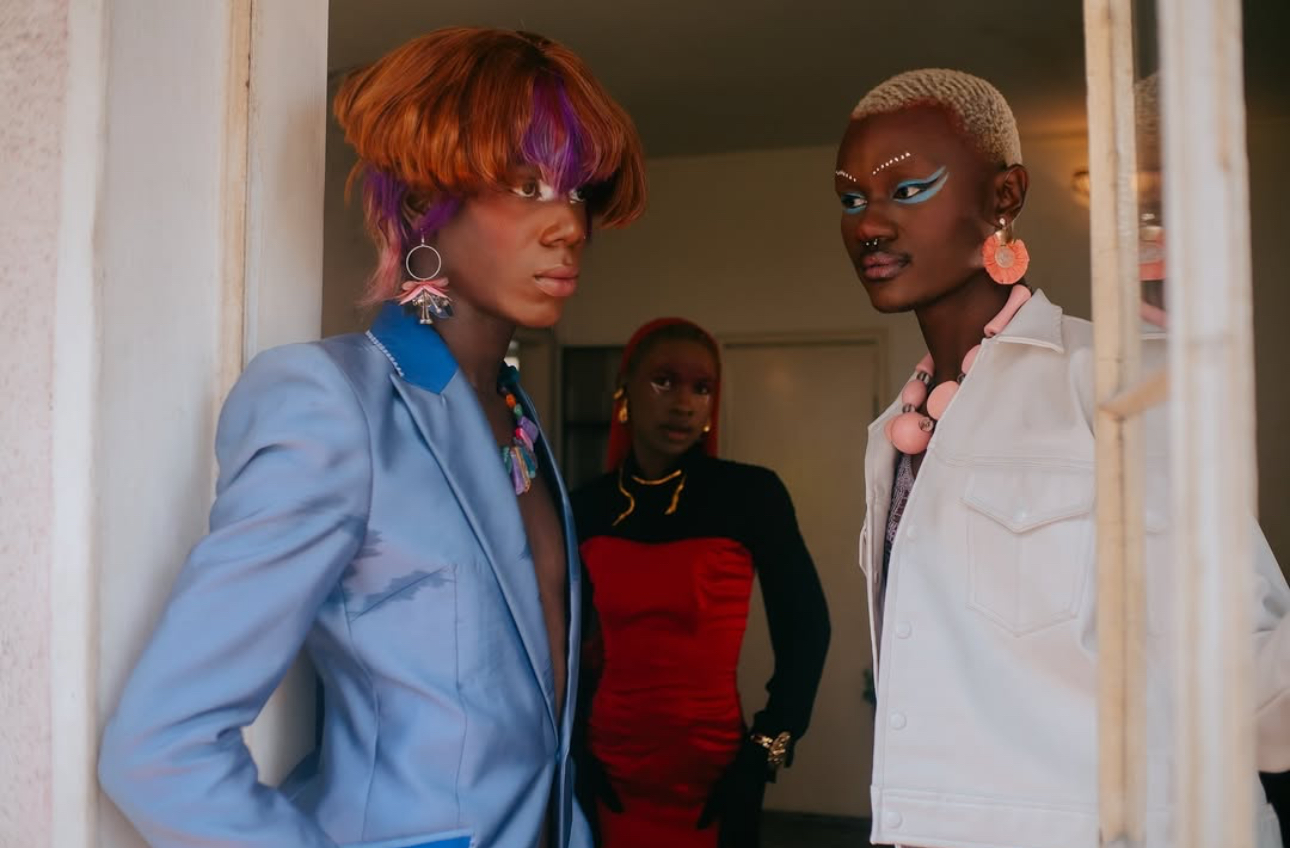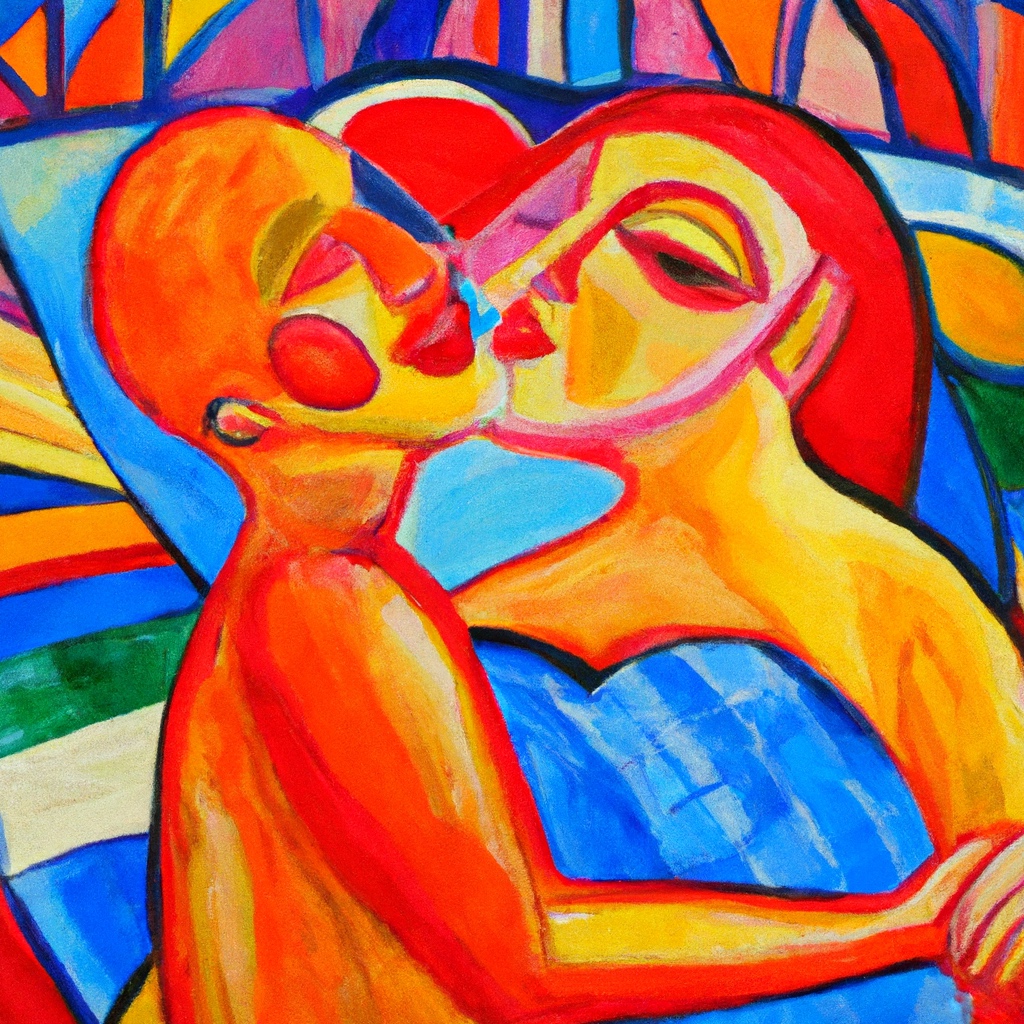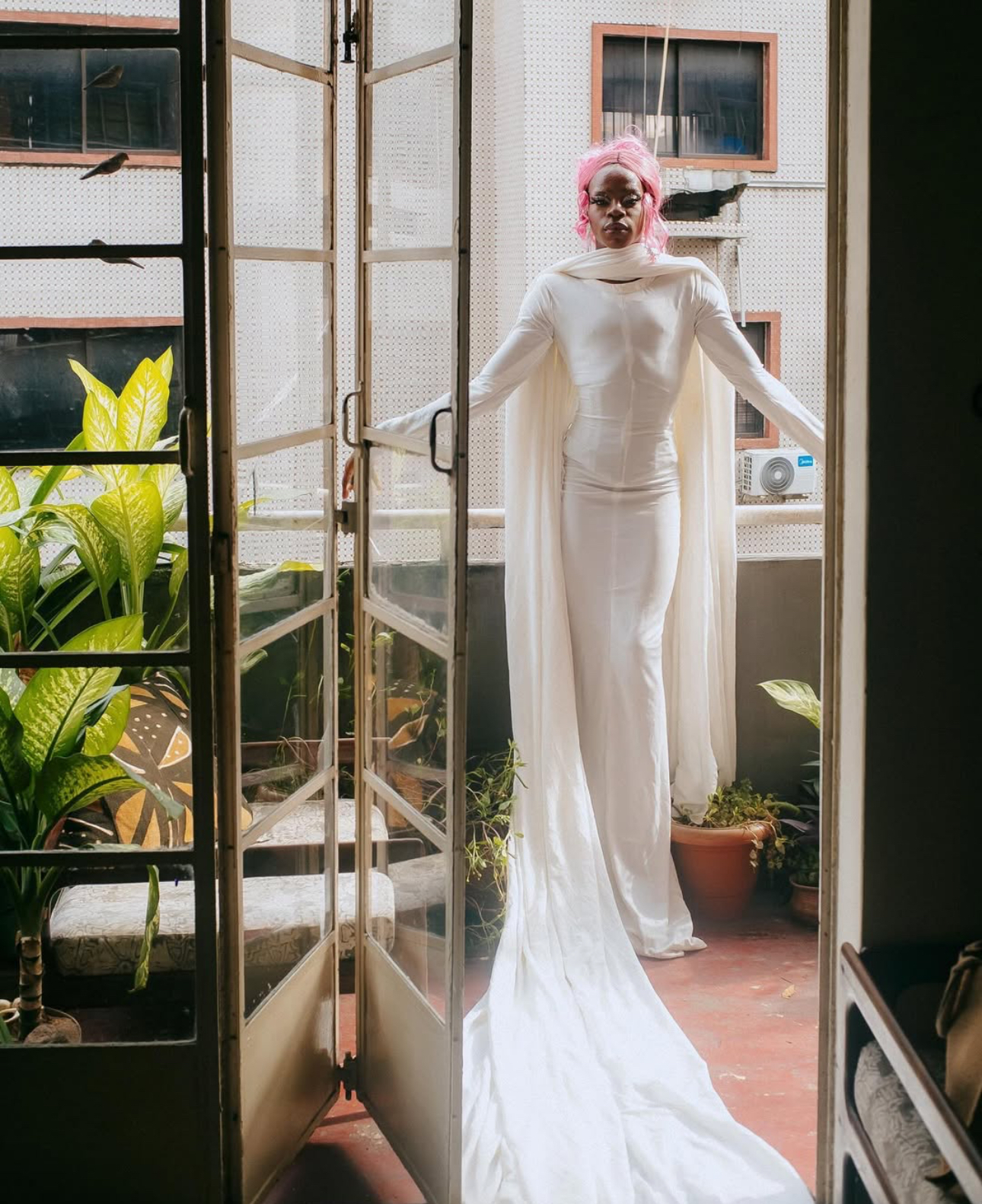Love, community, anti-gay laws: the queer African artists redefining visibility through portraits
In honour of Pride Month, Ugonnaora Owoh speaks to three artists on African queer legacies and their optimism in advocating for queer rights through art

Receive our daily digest of inspiration, escapism and design stories from around the world direct to your inbox.
You are now subscribed
Your newsletter sign-up was successful
Want to add more newsletters?

Daily (Mon-Sun)
Daily Digest
Sign up for global news and reviews, a Wallpaper* take on architecture, design, art & culture, fashion & beauty, travel, tech, watches & jewellery and more.

Monthly, coming soon
The Rundown
A design-minded take on the world of style from Wallpaper* fashion features editor Jack Moss, from global runway shows to insider news and emerging trends.

Monthly, coming soon
The Design File
A closer look at the people and places shaping design, from inspiring interiors to exceptional products, in an expert edit by Wallpaper* global design director Hugo Macdonald.
Across the African continent, where anti-gay laws and cultural stigma continue to endanger LGBTQ+ lives, art has emerged as a radical act of visibility and resistance. In societies where queer identities are often criminalised, silenced, or rendered invisible, artists are using the power of the image to affirm existence, celebrate intimacy, and archive joy.
Queer portraiture in Africa is not only an aesthetic practice – it is a political gesture, a form of survival, and a declaration of love. Through photography, painting, and performance, artists carve out space for narratives of tenderness, desire, community, and defiance, challenging reductive portrayals rooted in fear and erasure. These visual testaments push beyond trauma, offering glimpses of queer resilience, hope, and the enduring human need for connection.
Babatunde Tribe Akande

Babatunde Tribe, 'Love is Love'
'Creating art centred around queer lives and experiences holds immense significance for me due to its power to amplify voices often marginalised or silenced,' says artist Babatunde Tribe whose art journey began in 2021 after they stumbled upon paints and brushes at an event, sparking an unexpected artistic journey. In their art, bold colours, abstract figures and over-accentuated portraiture are emphasised. While few are explanatory, most carry deep meanings.
A handful of Tribe’s art speak eloquently about the self and the queer body, taken from their experiences as a non-binary artist living in Nigeria with strict anti-gay laws; a reason their art is a symbol for activism against these strict laws and a call to action. 'I’m motivated by the frustration of how society treats queer individuals. Through collections like Silenced Eyes, I aim to portray not just personal but collected experiences, shedding light on the challenges faced by the queer community and sparking conversations that drive positive change,' they say.
While navigating their identity in Nigeria as a queer person has been a complex journey, they have also found pockets of joy in the resilience of the LGBTQ+ community. And this connection heavily drives them and their zeal towards self-discovery and advocacy amid societal complexities.
Alexandra Obochi

Alexandra Obochi's portrait of Countess Sasha,
Alexandra Obochi is the photographer demystifying the tragedies that come with being queer in Nigeria, evident in her portraits titled Celebrating Queers which she has been working on for the past five years. The series is inspired by the photographer’s reconciliation as a queer woman in 2019, and adds to the limited archives documenting queer Nigerians through photography. Portraits show the anger at not being able to express love the way they want to, knowing they have to live under the tyranny of a law and society that deems them unworthy and forces them into hiding.
'I wanted to archive, document and also create representation of queer Nigerians but also portray them in a more elegant way that celebrates them and not just the struggle they face entirely due to the laws and bias from society. Advocacy comes in so many forms and I think photography is a means of pursuit for freedom,' she says.
Receive our daily digest of inspiration, escapism and design stories from around the world direct to your inbox.
Obochi worries about this law but she mentions it has also fostered her creativity, and her approach with life. Also adding that documenting queer works has been as therapeutic in reconciling her queerness. 'I love seeing queer love. I feel dismay when I can’t express it in public the way straight people do. It’s one of the reasons I create,' she says. One problem she constantly faces is lack of funding to expand on her work as a photographer and create further projects that show the realities of being queer in the continent at large.
Rachel Seidu

Rachel Seidu, Adedeji
Rachel Seidu’s practice is driven by self-liberation, resilience and the exploration of identities within oppressive systems. Merging conceptual and documentary styles, she crafts poignant portraits that reflect the intimate emotional worlds of her subjects.
A central focus of Seidu’s work is the representation of queerness. Through her lens, she builds a visual archive that captures moments of companionship, everyday life, and joy – experiences that were notably absent from her own upbringing. This body of work contributes meaningfully to the ongoing discourse around visibility and representation of marginalised communities in contemporary art.
Her exploration of the human form reveals layered narratives of pain and resilience, joy and freedom, highlighting the fluid nature of identity and the reclamation of space within restrictive cultural frameworks. 'The reason why telling queer stories through photography is important to me lies in my belief of documentation, I want to leave evidence that we lived, that we existed and do what younger me didn’t see growing up, I want the queer child growing up to know there are people like themselves and they exist proudly,' she says.
Her most recent body of work is a project that interweaves fashion and conveys a deep message featuring five individuals who embody resistance and resilience, thereby giving them their flowers. By documenting the diverse realities, particularly those that have been sidelined or erased, Seidu expands the queer visual archive.